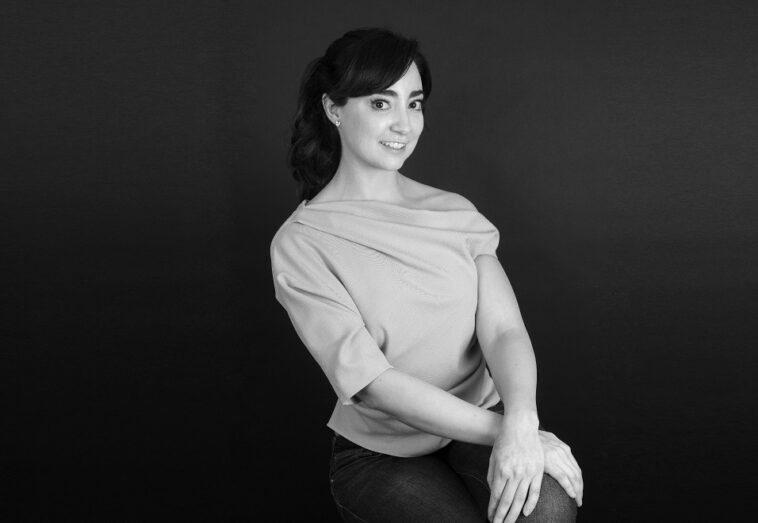One fine day, we stumbled upon Karen Ferez’s IG profile to get to know that she has founded a vitiligo support group in Mexico. Right before the coronavirus pandemic hit the country, this group used to meet every two months, having psychiatrists or other experts on broad to help attendees with the emotional challenges of living with vitiligo.
FYI – the 33-year old Internal Medicine and Dermatology specialist is the author of the Vitiligo Project (Proyecto Vitiligo) initiative. Under this initiative, Karen’s team clicks professional photographs of vitiligans showcasing their spots. The aim is to instill self-acceptance, embrace skin diversity, challenge the preconceived concept of beauty, and create awareness of the condition.
Karen’s credentials don’t just end here. She is also the creator of the Dermatoons, educational cartoons that explain skin conditions in a fun, simple way, from a cellular point of view. This is her dream project. The Children’s edition (Tiny Dermatoons) pf the same is on its way.
Talking of her journey with vitiligo, Karen had her first encounter with the skin condition at the age of 15. Though she says it was always difficult for her to deal with her patches, she never experienced any form of bullying. “Not as a teen, surprisingly not even as a physician. I worried that as a medical student, patients would not want me to touch them, but that never happened,” Karen shares her experience who has glaring vitiligo on her hands.
However, she goes on to add: “My initial experience as a teenager with vitiligo is pretty much what every vitiligan lives at the beginning of their journey – anger, negotiation, lots of dermatologists, and giving up on treatments. Feeling not unique, but alone and different. I didn’t even realize at first that I was angry with my patches as I continued to drop many treatments prematurely.”
When we asked Karen what movies, books, poems, stories, or other works of art have inspired her and encouraged her through difficult times, she mentioned few names like – The Wind by Haruki Murakami, Oh, the Places You’ll Go! by Dr. Seuss, History of Beauty by Umberto Eco and Touch by David J. Linden.
Karen feels she eventually managed to do something positive with her vitiligo. She pours her heart out, “Yes, it took me years to get used to it, but I see it as an advantage in my doctor-patient relationship. I became more empathic. I can understand how “just a spot” can be so devastating. I know that a patient is a whole person and not a little piece of skin that needs an ointment.”
Karen doesn’t think people are “proud” about a skin condition they didn’t ask for. She thinks they’re proud of having accepted it: “I’d be careful about generalizing; everyone has a different journey and turning down treatments could tell the pharmaceutical industry that vitiligans don’t’ want treatment. They might stop sponsoring research, which we don’t want to happen. Many vitiligo fighters out there are desperately looking forward to effective, new treatments.”
Karen says not just vitiligo, but all the dermatologic diseases are underrepresented in popular culture. Movies and TV have used dermatologic diseases to stigmatize the evil characters, and this has been very harmful: “Think about it, the evil witch is depicted with an awful mole on her nose; the shy kid has acne scars, never the cool kid. Princesses always have beautiful and fair skin. This makes the world’s expectations from beauty unreal. No wonder, people are spending thousands of dollars on skincare products, trying to look like characters that don’t exist in the real world.”
Karen is still optimistic about the future. She’s happy that the world has changed. Vitiligo research is going on. Instagram models have created awareness and normalized vitiligo. This only gives her hope that people will now stare those with vitiligo less. Here is her take -“Today, vitiligans have united around the world so we don’t feel alone and different anymore, we feel special. I’m thankful that the true meaning of beauty has changed. We’re finally embracing diversity.”
Karen ended the Q&A with a quote by Martin Luther King who once said – “I have a dream that my four little children will one day live in a nation where they will not be judged by the color of their skin but by the content of their character.” Karen likes to believe that we’re collectively working towards fulfilling that dream.

